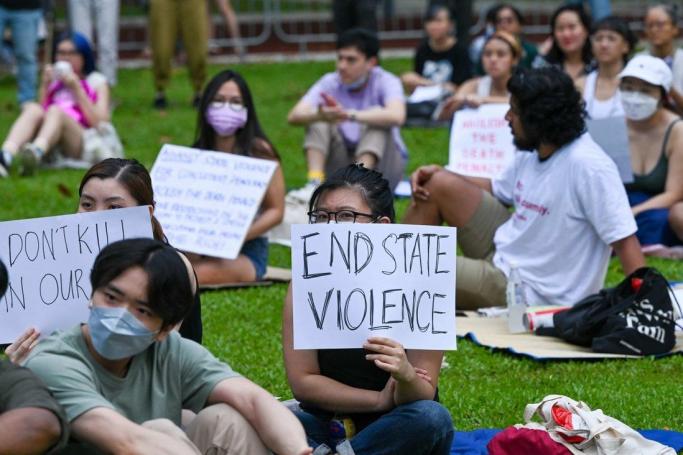The United Nations said two men convicted of trafficking drugs were put to death in Singapore on Tuesday, voicing alarm at further planned executions.
."We deplore the hanging today of two men in Singapore and are deeply troubled by the planned execution of two others on August 5," UN Rights Office spokeswoman Liz Throssell said in a statement.
A Malaysian and a Singaporean were hanged at Changi Prison after being convicted in May 2015 of drug trafficking and their appeals subsequently rejected, she said.
Two other men, Abdul Rahim bin Shapiee and Ong Seow Ping, are expected to be executed on Friday after the latter's family was notified of his fate on July 29, Throssell added.
They were both convicted in 2018 of possessing drugs for trafficking and their sentences upheld on appeal, she said.
"We urge the Singapore authorities to halt all scheduled executions," said Throssell.
"We also call on the government of Singapore to end the use of mandatory death sentences for drug offences, commute all death sentences to a sentence of imprisonment and immediately put in place a moratorium on all executions, with a view to abolishing the death penalty."
After a hiatus of more than two years, the city-state resumed executions in March with the hanging of a Singaporean drug trafficker.
The execution in April of Malaysian trafficker Nagaenthran K. Dharmalingam sparked international outrage due to concerns that he was mentally disabled
.
A fifth execution since March was carried out in late July and activists fear more will be carried out in coming months.
Prosperous but socially conservative Singapore has some of the world's toughest drugs laws, and has faced mounting calls from rights groups to abandon the death penalty.
Authorities insist capital punishment remains an effective deterrent against drug trafficking and has helped to keep the city-state one of the safest places in Asia.
"The death penalty is inconsistent with the right to life and the right to be free from torture or cruel, inhuman or degrading treatment or punishment and there is growing consensus for its universal abolition," said Throssell.
More than 170 states have so far abolished or introduced a moratorium on the death penalty, either in law or in practice, she said.
AFP












